The One Thing You Should Never Store in Your Basement, Experts Say
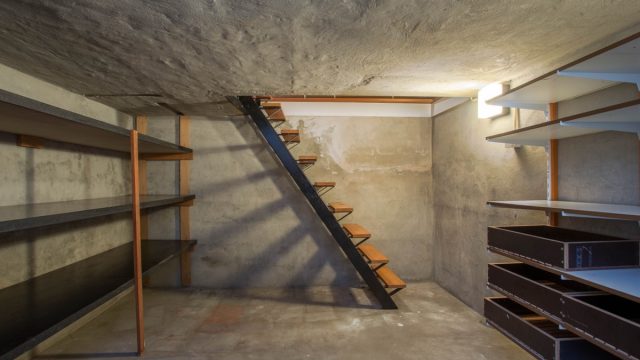
Many people take an “out of sight, out of mind” approach when it comes to their basement, using the space to store everything from rarely used cleaning supplies to precious family mementos. However, there’s one common item that could be putting you in serious danger if you’re keeping it in your basement, experts say. Read on to discover what you should never store in your basement to avoid this catastrophic mistake.
RELATED: 6 Things That Are Bringing Snakes Into Your Home.
Never store gas-powered equipment in your basement.
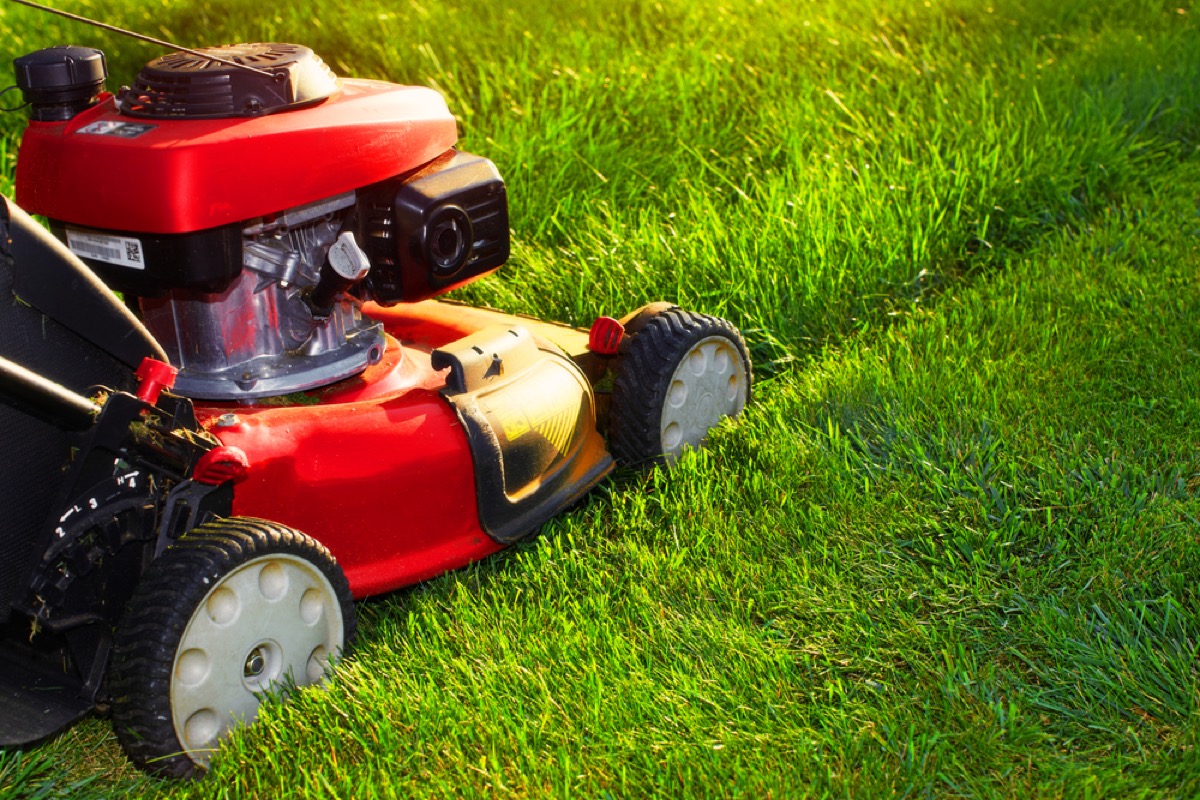
While you might want to keep your gas-powered lawn mower or leaf blower in a covered space like your basement to protect it against the elements, doing so could cause serious harm.
“When you store fueled-up equipment like lawnmowers in your basement, you put yourself at risk because of off-gassing, [which occurs] when the fuel from the appliance releases as vapor,” says fire safety expert Chuck Roydhouse, owner of Clean Sweep of Anne Arundel County, president of the Chimney Safety Institute of America (CSIA), and a retired professional firefighter.
For the latest home safety news delivered straight to your inbox, sign up for our daily newsletter!
Off-gassing in your basement can lead to devastating property damage and injury.
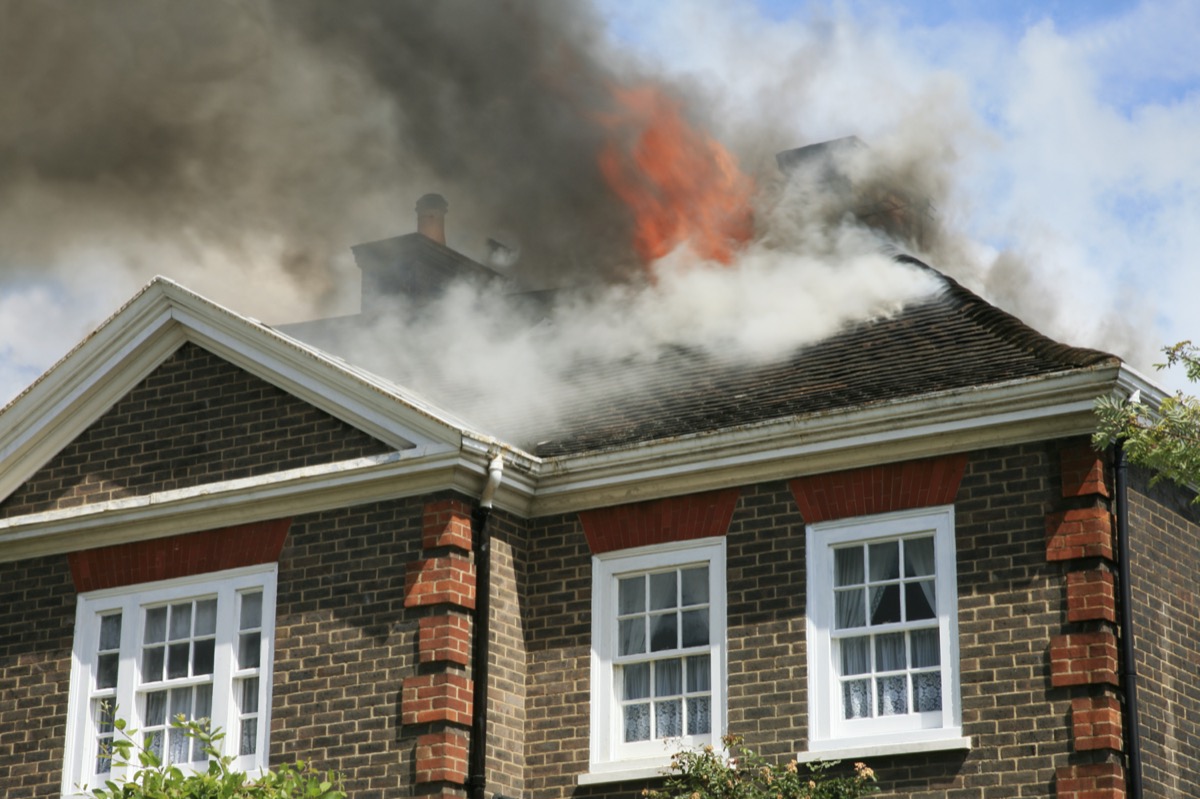
If you are storing gas-powered equipment in your home, you’re putting both your property and personal safety at risk.
“Because gas vapor is heavier than air, it can move through the floor of the home seeking an ignition source,” says Roydhouse. “[If] the pilot light of your gas water heater fires up or you get an arc from a light switch that’s flipped on, that can ignite the vapor. The vapor can then burn all the way back to the fuel source, causing an explosion.”
Storing gas cans in your basement presents the same risks.
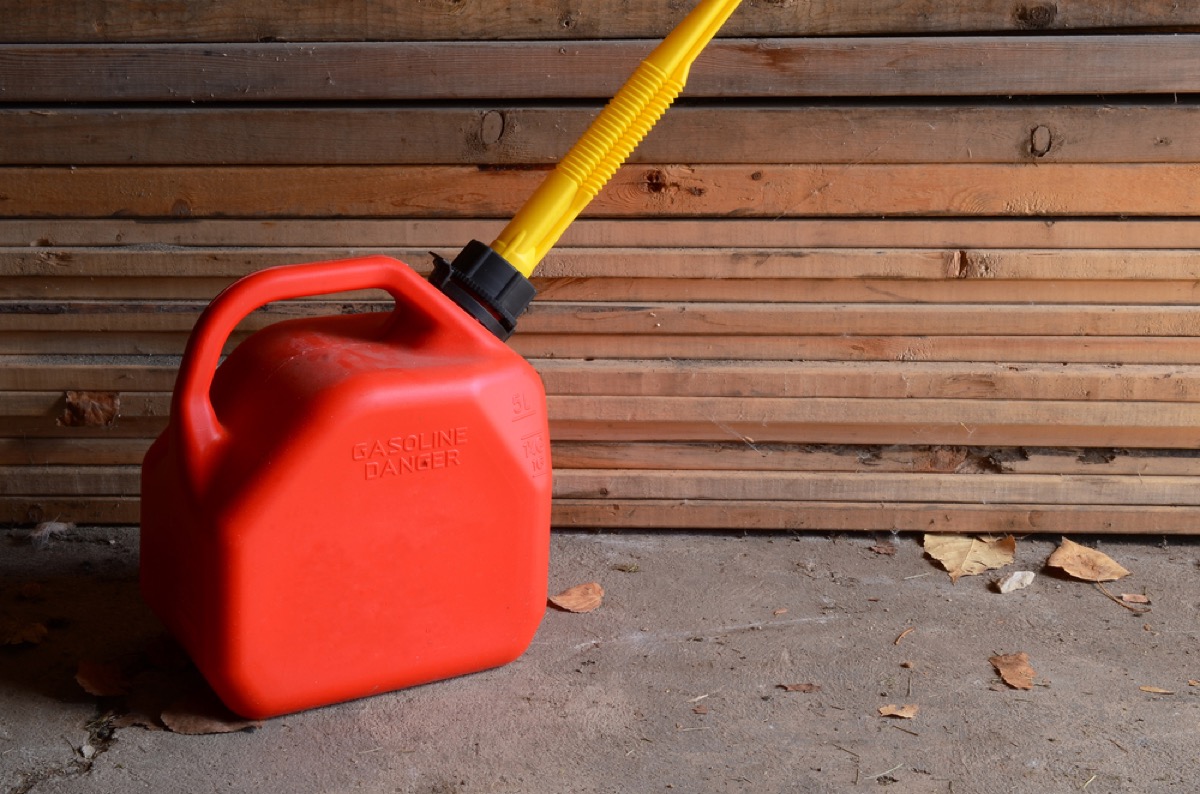
It’s not just gas-powered appliances that put you at risk—storing uncapped gas cans in your basement puts you in similar danger. “Gasoline can release vapor into the air…If the vapor is ignited, it can cause a rapidly spreading fire and an explosion in your home,” says Roydhouse.
If you do keep a gas can on your property, the National Fire Protection Agency recommends keeping it tightly capped and never storing it in your living space.
Gas-powered generators pose a double threat.
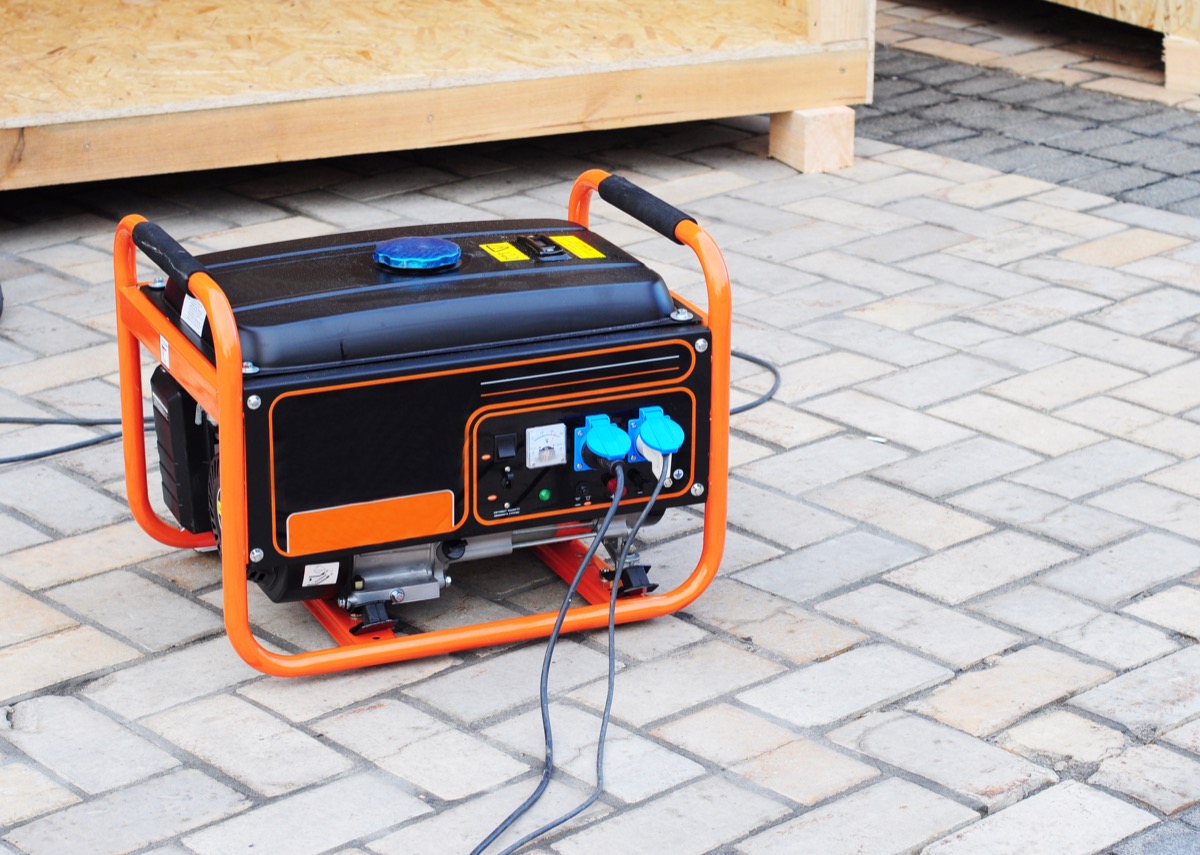
If you frequently lose power, you may have a gas-powered generator on hand to keep your appliances running. However, if you’re keeping your generator in your basement, you risk two serious health and safety hazards. In addition to the potential for your generator’s gas vapor to ignite and cause an explosion, the Consumer Product Safety Commission (CPSC) explains that generators used inside a home can increase your risk of carbon monoxide poisoning.
To operate your generator safely, the CPSC recommends keeping it outside and making sure it’s at least 20 feet away from your home while in operation.